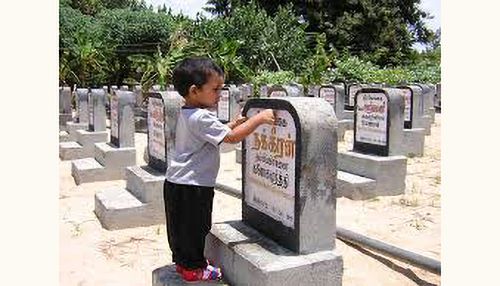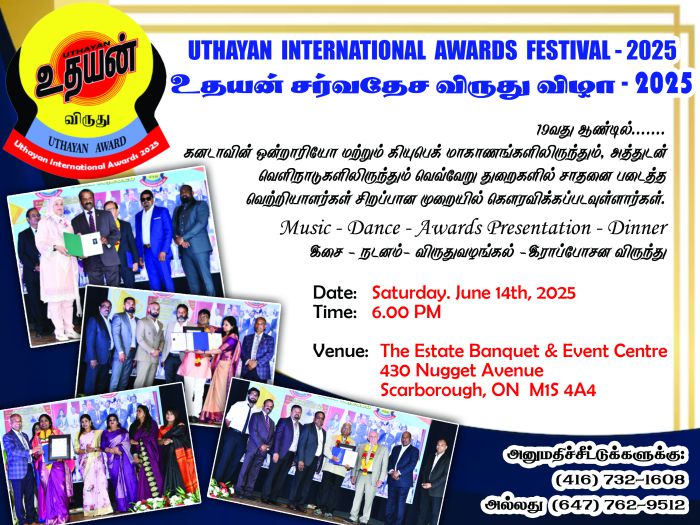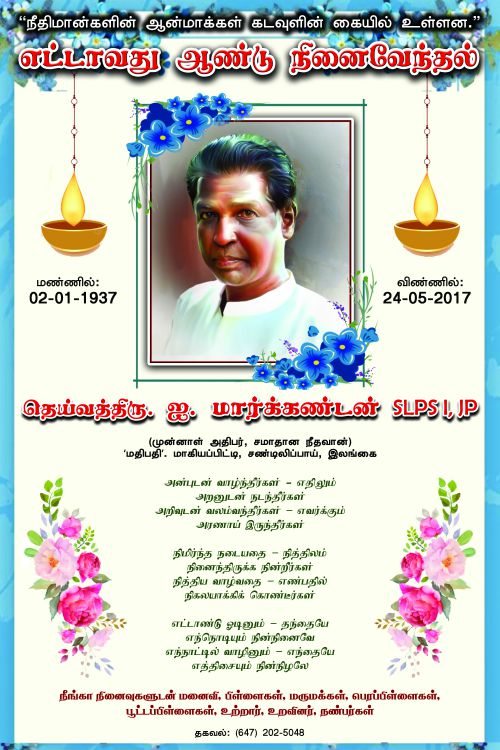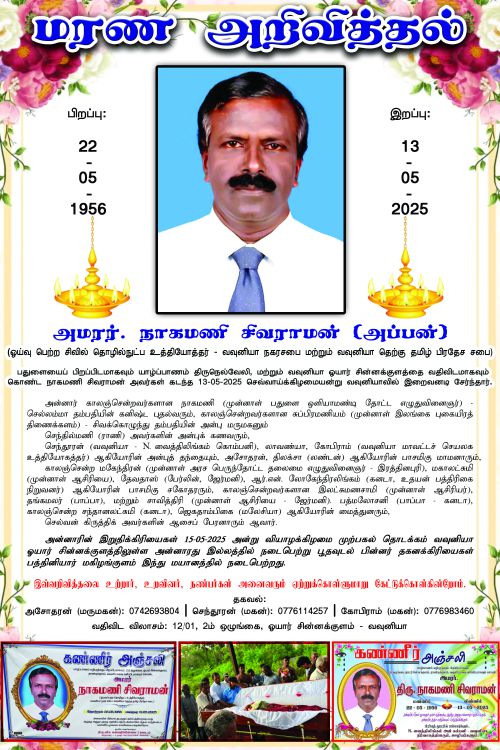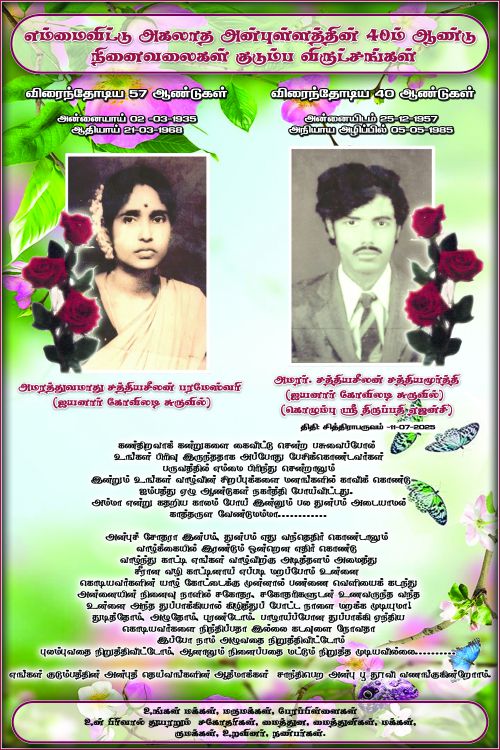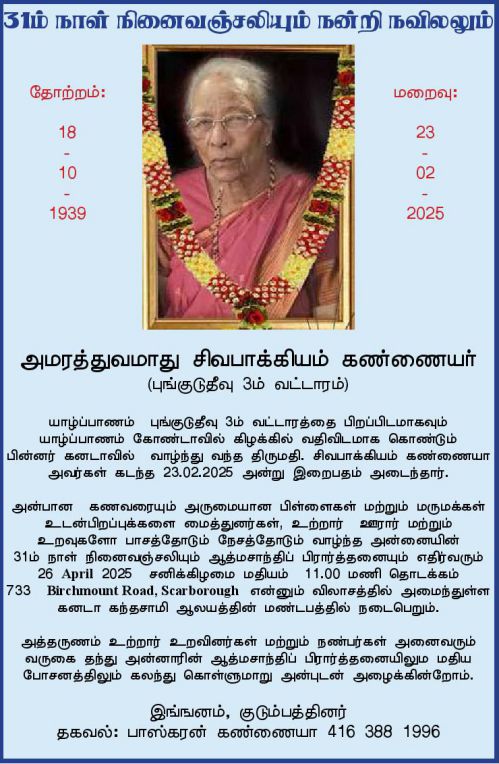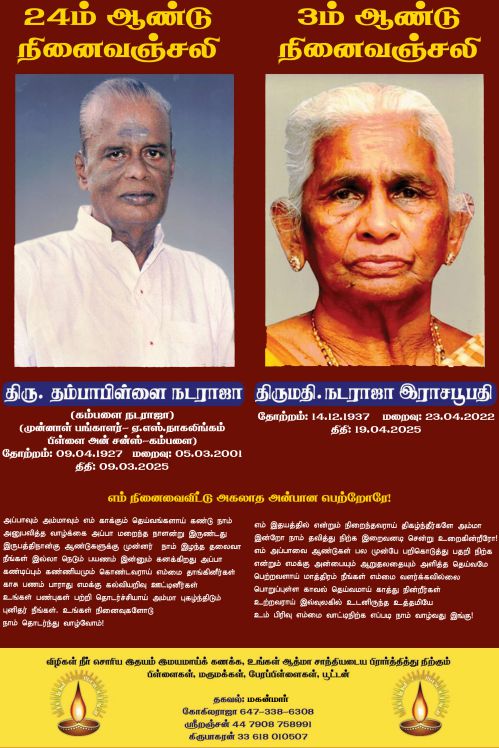Siva Parameswaran— Senior International Journalist London
The right to mourn is akin right to life according to international covenants.
But the unrelenting Sri Lankan hard-line regime has put into practice the arm-twisting strategy of obtaining restraining orders against dozens of persons to mourn the dead. As the ‘Maaveerar Naal’ approaches, security has been tightened in the North and East in particular the areas which suffered the most in the war.
Come November the Sri Lankan government goes into panic mode and the Tamil people even lighting lamps on their traditional festivals becomes allergic to the government. It’s part and parcel of Tamil culture to light a lamp on any occasion in particular remembrance days.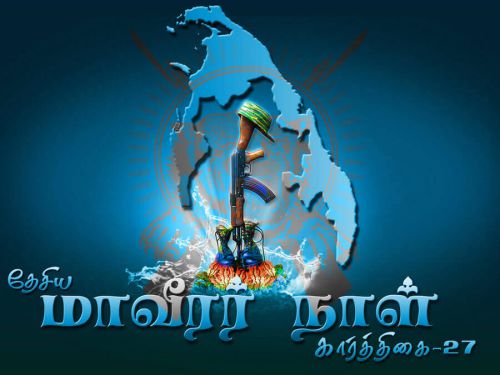
Continuing its policy of racism and antipathy towards minorities, in particular the war affected Tamils the Rajapaksa regime has again used its state apparatus-the draconian police and the dreaded military which is accused of war crimes to prevent the families of those who lost their kith and kin during their annual remembrance event.
Keeping in line with its ploy of seeking court’s direction to stop any social gathering of the Tamils, the Police have obtained restraining orders against individuals to stop them from lighting lamps and remember those who died during the three decades of the brutal civil war.
Echoing what the Foreign Minister Prof G.L. Peiris told the media in Colombo “that under the guise of mourning the dead, the event is used to glorify the LTTE which the government will not allow”; the Officer in Charge of the PTK police station informed the court while seeking restraining orders that he has received information from the military and police intelligence units that the proscribed LTTE is planning to commemorate its deceased members, as directed by its leader Velupillai Prabhakaran on 27 November.
International Human Rights activists and lawyers say that the right to mourn is a basic right though not explicitly enshrined.
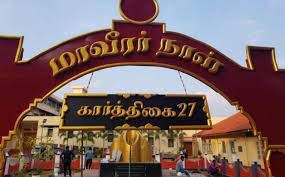
“The right to mourn is universal; you cannot prevent mothers and fathers from mourning their children even if they are LTTE cadre” Yasmin Sooka the International Truth and Justice Project’s Executive Director has said. “This is criminalising Tamils even beyond death; it’s utterly absurd and more so in a country that talks all the time about reconciliation.”
The end of the over three-decade old civil war saw thousands of people dead according to the UN and other international agencies who were evicted from the war zone by the current President Gotabaya Rajapaksa who was the defence secretary during the final phase of the war.
Questions have been raised in the social media about what they call the ‘double standards’ of the Rajapaksa government who on one hand speak about national reconciliation and on the other hand even banning a basic right to mourn the near and dear who were killed in the war.
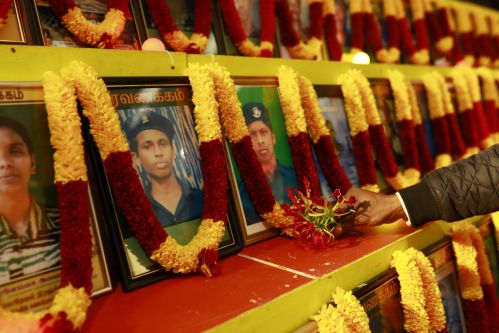
As Sri Lanka’s Military is increasing its surveillance in the Tamil dominated North and East of the countries, the Tamils who suffered immensely and living under constant fear and threat say year after year their lives are thrown out of gear in the month of November.
Afterall, to mourn the dead is to be human.And, the right to mourn is undeniable and preservation of memory should be a substantive right.
Meanwhile delivering a big blow, courts in Sri Lanka have given contradictory decisions as the police and the hard-line government tried to stifle the genuine aspirations of the war affected Tamils to mourn their near and dear.
Allowing the victims family to mourn their dead may open a small window of confidence and a first step that the dream of reconciliation and accountability may become a reality.


